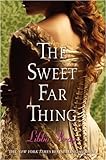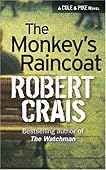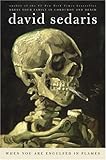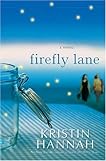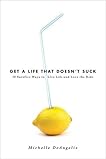 Get a Life That Doesn't Suck: 10 Surefire Ways to Live Life and Love the Ride by Michelle DeAngelis
Get a Life That Doesn't Suck: 10 Surefire Ways to Live Life and Love the Ride by Michelle DeAngelisMy rating: 3 of 5 stars
A refreshing take on a self help book that, while it doesn't necessarily teach anything new and noteworthy, it teaches all the things we should know in a way that's refreshingly digestible and immediately applicable.
The summary from the book cover, which explains it pretty well (although the claims *may* be a little over generous for what it delivers...):
Life can really suck. But it doesn't have to. This book offers a better way to live every day.
Engaging and encouraging, Get a Life That Doesn't Suck: 10 Surefire Ways to Live Life and Love the Ride explains how ill-equipped most people are to deal with the challenges in life and then introduces foundational tools and effective techniques to take you from crappy to happy. By providing the specific "mechanics" to joy, Michelle shows that joy is a repeatable by-product of living your life in integrity and of making conscious choices every day that kick misery, worry and guilt to the curb.
For anyone who is bored, disenchanted, or in despair, this book serves up a combination of street-smart wisdom and cheerful irreverence and shows you how to enjoy the "ride of your life," regardless of the roadblocks along the way.
With this book you can:
•Close the gap between your dreams and your real life
•Learn very specific techniques to make the best of every situation
•Get the importance of saying what you mean and doing what you say
•Learn how to thoughtfully respond instead of react to tricky situations
•Master the 10 Life-Changing Ahas - daily actions that improve your life
•Get the tools you need to manage yourself and make life easier
•Um, get a life that doesn't suck!
Check out another synopsis of the content here:
http://www.michelleinc.com/the_10_life_c...
View all my reviews >>


